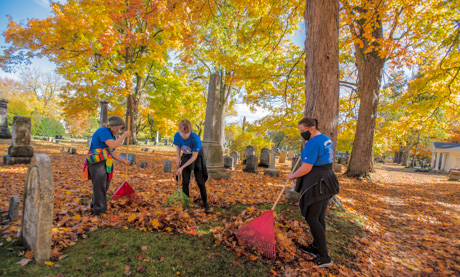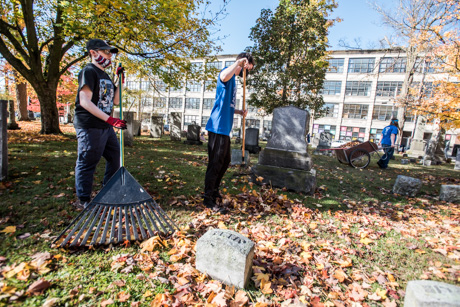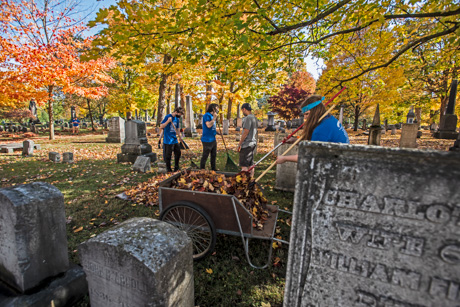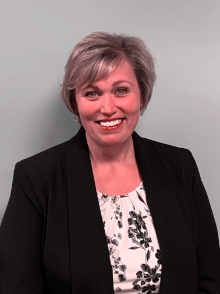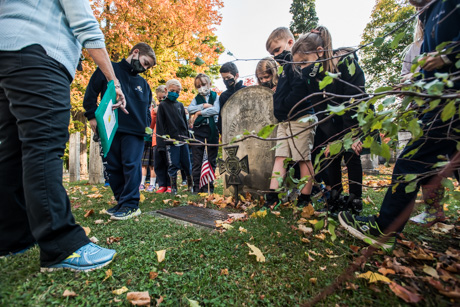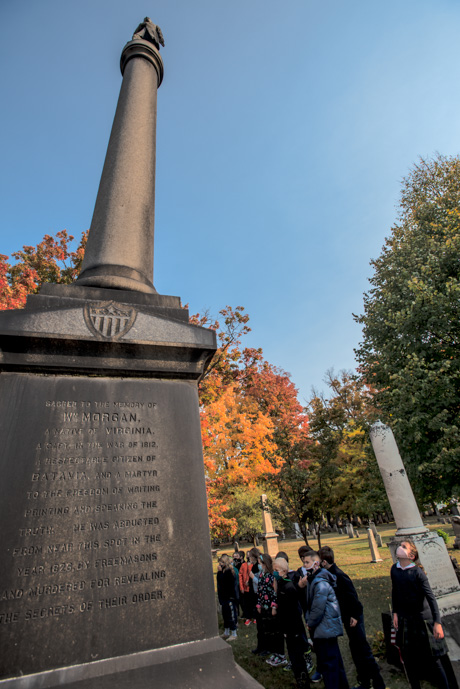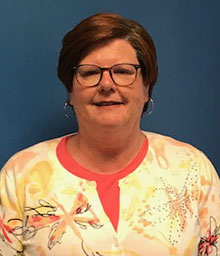Graham Corp. gifts pricey welding simulator, a 'huge bonus' for Metal Trades Program at Batavia CTE Center
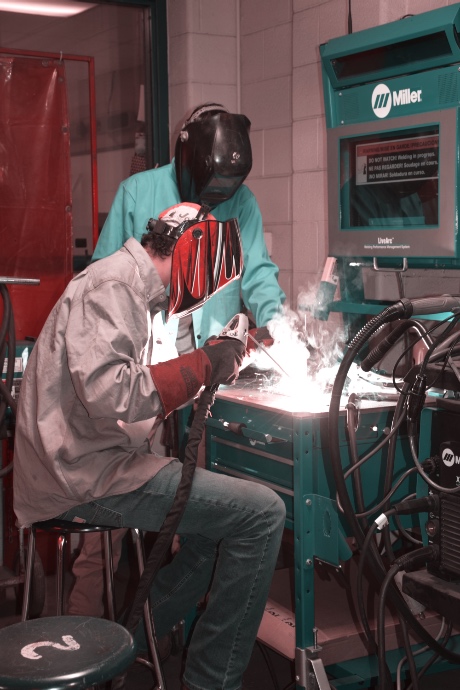
Photo: Aaron Leone, right, practices his welding skills on the Miller LiveArc machine, as welding instructor Andrew Geyer, guides him.
Submitted photo and press release:
When Graham Corporation and the Genesee County Economic Development Center approached the executive principal of the Genesee Valley BOCES Batavia Campus about donating a welding simulator, Jon Sanfratello knew that this was a huge bonus for the Metal Trades Program.
“When businesses invest in our programs, our students are the true benefactors," Sanfratello said. "This welding simulator, that Graham Corporation has so generously donated,will provide our students with an additional training tool to test their skills.
"One of our top priorities here at GV BOCES is the integration of both applied and practical skills into curriculumso our students are college and career-ready. This training tool is another means of achieving our goal. We are so very appreciative of Graham’s investment in our program and students.”
At the end of the 2019-2020 school year, Graham Corp. provided them a Miller LiveArc Welding System. It provides a simulation scenario for a student to practice welds in a live-arc training mode.
Andrew Geyer is the welding instructor at the Batavia Career and Technical Education Center.
“The Miller LiveArc has cameras and infrared sensors that will read students’ welds and grade them accordingly based upon the parameters that are set,” Geyer said. “It is our hope that representatives from Graham can spend some time with us and program the machine with industry-based welds, so students can get a better understanding of what is expected in industry.”
Geyer and Metal Trades students recently met with Graham Corp. representatives and Chris Suozzi, GCEDC vice president of Business & Workforce Development, via Zoom. During this online meeting, students asked many questions about employment opportunities at Graham Corporation.
Graham Corp. is well known for being a major employer in the region as well as a big supporter of schools especially, Genesee Valley BOCES. Graham has gifted other materials used in the Metal Trades Program at the GV BOCES Batavia Campus, too.
“The Welding Program at the Batavia CTE Center is very important to Graham Corporation and to our community," said Alan Smith, general manager of Graham Corp. "As Graham continues to grow, access to skilled welders is vital. Welders make up approximately 50 percent of Graham's skilled workforce.
"Graham has a long history of supporting the welding program at the Batavia CTE Center with donations of plate steel and weld wire. Graham's latest donation of the weld simulator will enable students to learn proper welding techniques by providing immediate feedback while saving the expensive cost of weld wire.”
Graham Corporation also has a track record of hiring welding students from the Batavia CTE Center and from other BOCES around New York State. Don Fonda, superintendent at Graham Corp., says this partnership goes back decades.
“We have close to 75 employees who went to a BOCES program, and add in some recent new hires, the total is over 80 employees," Fonda said. "We have 53 employees who came to Graham from the Batavia GV BOCES program.
“From what I could find out the Graham/Batavia GV BOCES connection goes back to the 1970s when GV BOCES was next to the industrial center. Bob Torrey was one of the first co-op students at Graham. He started at Graham working three days and Saturdays in January of 1974 while he was in school. He was hired full time in June 1974, 46 years ago.”
Suozzi says partnerships like this benefit the community.
"The Genesee County Economic Development Center applauds Graham Corporation for investing in equipment and experiences that will benefit every 11th- and 12th-grade student learning in GV BOCES' welding lab," Suozzi said. "This partnership strengthens the skills of our students for the great careers at Graham Corporation.”








